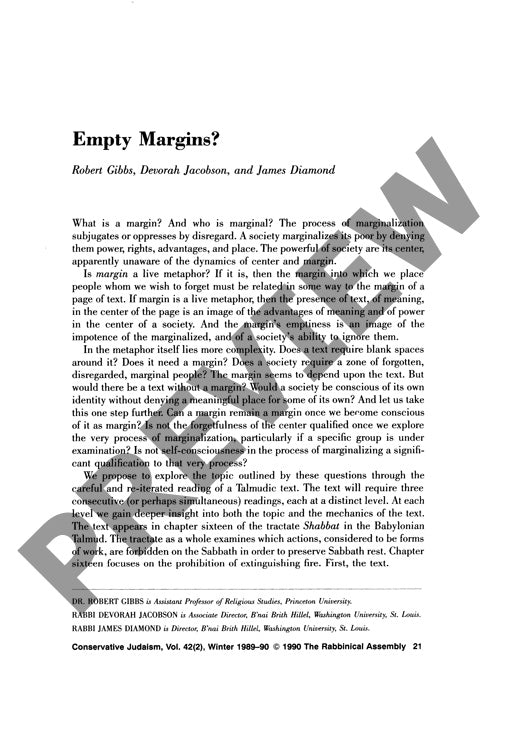Empty Margins
Couldn't load pickup availability
Sacred margins hold hidden power. When Talmudic sages debated whether blank Torah scroll margins could be saved from fire on the Sabbath, they wove together three distinct conversations about holiness, textual meaning, and religious identity. Through hermeneutical analysis at pragmatic, textual, and religious-social levels, their discussion reveals sophisticated insights about marginalization that resonate in contemporary social discourse. The pragmatic level tackles what makes sacred texts holy and whether blank spaces carry inherent sanctity. The textual analysis probes deeper, questioning how margins shape a text's fundamental meaning and integrity. Most provocatively, the religious-social level unveils an inter-religious polemic where "gilyonim" (margins) doubles as wordplay on the Greek "evangelion" (Gospels), transforming the debate into coded commentary on Judaism's relationship with Christianity. The sages' complex argument simultaneously marginalizes Christianity while conducting nuanced reflection on marginalization itself. Their discussion reveals that margins, despite appearing empty and powerless, prove essential to the center they frame, destabilizing simple center-periphery dichotomies. This ancient text illuminates modern questions of social and political marginalization, suggesting that the act of marginalizing others represents neither mere indifference nor total exclusion, but rather a complex instrumental appropriation that ultimately challenges its own legitimacy.

More Information
-
Physical Description
-
Publication Information
Published 1989-1990
ISBN
-
Publication Credits
Robert Gibbs

